Anaal Nathrakh interview (12/2014)

| With: | David "Dave" Hunt |
| Conducted by: | ScreamingSteelUS (video) |
| Published: | 06.12.2014 |
|
Band profile: |
Anaal Nathrakh |
Back in October, I reviewed the latest edition of soul-shredding noise from Anaal Nathrakh; when the opportunity for an interview subsequently arose, our lovely editor-in-chief kicked it over to me. I spoke with vocalist Dave Hunt, a.k.a. V.I.T.R.I.O.L., about their new album and, after the initial pleasantries, finally found out how to pronounce the name of the band.
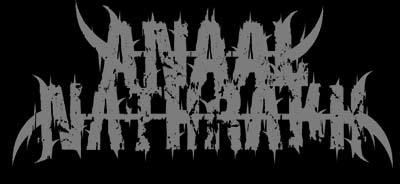
Kevin: Alright, so? first question - and I apologize for this, but, uh? how do you actually pronounce the name of your band?
Dave: (*laughs*) We say "Anaal Nathrakh" [rhymes with "span Al math rack"]. We took it from a film, so if you want, like, the "canonical" way of doing it, you can check out the film; it's called Excalibur, from some time in the mid-'80s, but yeah, "Anaal Nathrakh" is how I say it.
Kevin: Right, that one? It's more dangerous than usual to mispronounce that one.
Dave: (*laughs*) Yeah, plus in certain countries, the way we spell "Anaal" is actually the way they spell "anal," so. Yeah, there's been some misconceptions going around.
Kevin: So, speaking of other languages, you have a lot of your song titles in Latin or French or German or something, especially on the last few albums. Is there something about those languages, or just language in general, that you find interesting?
Dave: Yeah, I mean, I find language just full stop kind of fascinating, because I have an interest in philosophy, which I try not to hammer down anyone's throat too much in Anaal Nathrakh, because it gets kind of dry and boring, but a lot of more recent stuff, you know, since the start of the 20th century, a lot of that has been to do with analyzing language and stuff, 'cause in a way, language is the buffer between the way we think about things and the world itself. We think in terms of language and stuff, so yeah, I think it has a profound effect on a lot of things, but in terms of using things in Nathrakh? I think languages often have a sort of atmosphere to them. If you have something in Latin, for example, it's got gravitas! It sounds a certain way, and that's probably to do with the fact that it was used in churches for years. The same goes for virtually any language; if it's not your first language, then it has a certain ring to it, an idea to it, and it's also to do with the fact that some of the time the languages are to do with the integration of a track's source. It might come from a quote that was originally in German or French or something like that, so using it in the vernacular is first of all a way of keeping integrity with the idea behind the source, and also a bit of a signpost to where we were coming from. You might be able to look up a phrase on the internet and you'll be able to see the source for it or something like that. So yeah, I find language a pretty useful tool to do a few different things with.
Kevin: I definitely agree that some languages just have a certain sense about them that's very useful for conveying a certain feeling or certain atmosphere or something.
Dave: Yeah, they absolutely do; there's a band I quite like from the Czech Republic, called Kult Ofenzivy. They're a tiny band, really, and I'm the only one as far as I know who has heard of them, but they sing in Czech. It's kind of like the early Darkthrone stuff, you know, it's not reinventing the wheel in many ways, but the fact that it's in Czech has this mysterious sound to it that other languages don't, and it sounds like the guy's casting spells. It gives it something that it wouldn't have otherwise, and I think that's true for a lot of languages.
Kevin: You guys signed to Metal Blade earlier this year. Did that impact the process of creating the album at all?
Dave: No, no, and I can tell you definitely that there wasn't even any subconscious influence because we pretty much finished the album before we signed the contract, so it wouldn't make any difference. We did see a little bit, after we'd signed with them, we saw some people saying things like they thought we were in danger of being "manipulated" by the label or something like that, and that's just not the way things work, it really isn't. It might be the way things work if you're on Sony and you're some kind of singing stripper like half the pop acts seem to be nowadays (*laughs*), but at our end of the market, they pretty much let you get on with things. So yeah, the relationship's been pretty positive so far; we'll see how things work out, but yeah, the album is precisely the album we would have released with whoever.
Kevin: You've expressed an interest in collaborating with artists like King Diamond, DJ Ghost of GGFH, and Philip Best from Whitehouse in the past, although that never happened. Do those ideas still appeal to you, and is there anyone else you'd like to work with in the future?
Dave: Yeah, I mean, I see no reason to not want to work with somebody we wanted to and didn't get the chance to before; I'm not aware of any of them suddenly having become Nazis or anything ridiculous like that (*laughs*). So yeah, yeah, we'd definitely still love to, but it's more a matter of what feels right at the time, so maybe we'll try to get back in contact with them, maybe we won't, but there are always? I mean, we've never actually had the balls to ask King Diamond (*laughs*), so yeah, you never know. Maybe one day we'll try that; we're just fans, really. He's kind of unique and kind of amazing, so it'd be great to do something with him.
Kevin: I'd be interested.
Dave: Yeah. On this album we worked with an electronic music guy [GoreTech] who's got a background in metal, and he knew who we were and he was a fan of the band in the first place, so it was easy to get on the same page, but there's an electronic guy that me and Mick [Kenney, multi-instrumentalist] both like listening to who releases stuff under the name Broken Note, and we'd be really pleased if we got the chance to work with him. There's a couple of other guys out there who would be cool, so yeah, we continue to have ideas about doing it and we think it just adds something a bit novel, a different way of looking at things. It's a cool thing to do.
Kevin: Are there any bands you'd like to tour with?
Dave: I don't know, to be honest. I think it's better to have an open mind with that kind of thing and just see what happens. We've spoken about touring with Napalm Death about a hundred times over the years (*laughs*). They're friends of ours, and I think the two bands go really well together, but whether it comes we'll see. It's one of those things, you know, it comes up and then it never happens and then we decide to do it again in six months' time and everything, but one day, it would be cool if we could get that sorted.
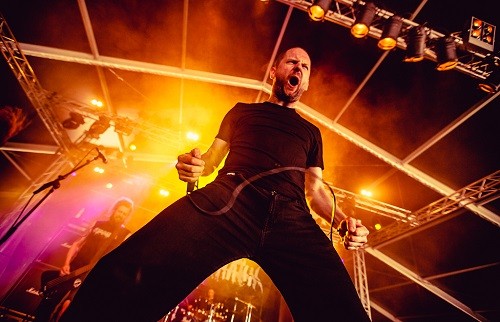
photo by Petri Vilén Photography
Kevin: Are you planning on ever doing a US tour?
Dave: Well, we have a US agent who is currently looking at some things, so with any luck, yeah; I mean, there's no concrete plan that I can give you at the minute or anything, but we're hoping to do that at some point.
Kevin: I look forward to that. The whole touring thing in general is a fairly recent development for you guys, now that you've got a full band put together to do that stuff. Have being able to tour and play your material in front of an audience given you a different perspective on your music, or new ideas for future stuff?
Dave: Yeah, it does give you a little bit of a different perspective, because, live, the more blunt, the more visceral elements sort of come to the fore, you know? It's blood and snot and all that kind of thing (*laughs*). It's a bit of a different take on doing things, so yeah, it is a bit of a different perspective, but no, it doesn't affect how we do things when we make an album, because they're different beasts. When you're doing an album, it's got to work as an album, and that has to be your focus. If you compromise in that, in order to make the songs easier to play live or something like that, then you're not doing the best album that you can; you're doing a compromised version of it. So we wouldn't do that, but we sort of "set ourselves homework," if you like. We all do the stuff on the album as best we can, and then afterwards, "fuck, how do we do it?" (*laughs*) We've got to figure out how to pull that off. We've usually managed so far, so the two strap-ends work okay together.
Kevin: Your music often deals with pretty nihilistic and misanthropic themes, and appropriately, "Desideratum" is Latin for "desired" or "having been lost." Are there any books or theories that have particularly influenced this one?
Dave: Yeah, there's a fair bit of stuff; I mean, if you're even vaguely familiar with us, you probably know that we tend to draw on quite a variety of things, some of it quite esoteric. There's an influence taken from Bertrand Russell, who was an early 20th-century philosopher at Cambridge in the UK; there's stuff taken from a book written by a guy called Thomas Pogge, who's a German chap who researches world poverty and things like that? I was concerned a little bit with a guy called David Benatar - not Pat Benatar, David Benatar (*laughs*). He wrote a book that's what you might call "anti-natalist" - as in "anti" rather than "ante" - Better Never to Have Been Born, and his book's philosophical argument to that effect, stuff like that, but there's other stuff as well, you know? There's things you see on the news, just things that occur to you as you're walking 'round the streets. The track "Ita Mori," the title's taken from a painting, a portrait painting I came across on the internet, so there's quite a diverse range of stuff going on.
Kevin: So you're responsible for the lyrics, and Mick does the music. Have you ever thought about switching places?
Dave: No, not really. I mean, we do have a bit of input sort of "across the boundaries," if you like. The last track on the previous album, Vanitas ["A Metaphor For The Dead"], that was Mick's interpretation of an idea I came up with, and stuff like that. But for the vast majority of cases, Mick's way better at writing music than I am, and I'm much better at coming up with ideas and things for lyrics than he is, so, you know, if it ain't broke.
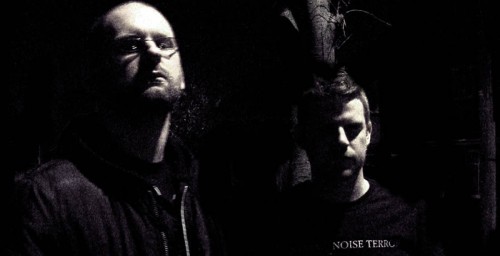
Kevin: When you write, do you write something specifically for Nathrakh versus Benediction, or something else entirely? How do you decide what would fit best where?
Dave: It's a matter of the feeling of it, so personally I keep a list of ideas and snippets of lyrics, stuff like that, just on an ongoing basis; whatever occurs to me that has the right kind of feeling to it, I make a note of it. There's a pretty obvious instinctive sense that "that's a Nathrakh thing," or whatever. With Benediction, for example, it's kind of stylized in the first place; it had an aesthetic, it had a way of doing things that was there long before I came on board, so that's more of a sort of focused idea, where I'll sit down and I'll try to come up with good stuff for Benediction, whereas Nathrakh's more whatever comes into my head that feels suitable. I'd say the division between the two is pretty instinctive, and I think that goes for Mick as well; he's always coming up with music. He's a creative guy; he's always painting or writing music or whatever it is, and you can tell by the feeling of it. It's not really, "I am now going to sit down and write an Anaal Nathrakh song." It's not like that, but there's a mood, there's a feel, there's an atmosphere, and it's definitely Nathrakh or it's not.
Kevin: I know you've got your column for Terrorizer magazine.
Dave: I did have, yeah.
Kevin: Would you ever branch out more substantially into literature, like writing a book or anything?
Dave: I don't know. I mean, I had that thing with Terrorizer for a while, but I was finding it difficult making the things I was interested in talking about fit the magazine, if you know what I mean. That's no disrespect to the magazine; they have a certain approach and I'll just write about whatever I find interesting, and the two sort of partially coincided sometimes rather than being a marriage made in heaven. Writing stuff? I don't know. I tend to think I can come up with some very interesting perspectives on stuff, but I'm not that bothered whether other people know about it. I tend not to be opinionated unless someone asks me a question like you do, something like that (*laughs*). So, I don't know, maybe. At the moment I am writing something, but it's? I'm doing like a project for a university, so I've got my hands full of writing at the moment. Once that's finished, I have fuck else to do.
Kevin: I'm sure there's got to be a market for some Anaal Nathrakh detective novels or something.
Dave: (*laughs*) Yeah, whodunit? "It doesn't matter who did it, you're all guilty!" Something like that.
Kevin: I think one of the most outstanding characteristics of Anaal Nathrakh, one of the things that really drives the whole nightmarish, necrotic, destructive sound thing, is your vocal performance. You cover a pretty wide range of singing styles; you use a lot of techniques, which is really interesting. What was the original impetus for using a bunch of different techniques instead of sticking with one thing?
Dave: Hm? well, thanks, anyway (*laughs*). That's quite a nice thing to say. It's a matter of just reacting to the music. That's what it is; it's whatever feels right, 'cause that's how we do things, in a variety of different ways. Another thing people often say about us is we blend genres together or something like that, and it's the same instinct as lies behind that; we've got an idea of something in our heads and we'll use whatever comes to hand to convey it, to get that feeling out, across, to create the right atmosphere. And with the various different vocal styles and stuff, it's just a matter of trying things, you know? I will sit down and just listen to a piece of the music over and over and I'll just try and think of what feels like the best way to deal with that and then do it. In some cases, it just doesn't work, but you give it a try. You find out your limits and find out what you can do by way of experimenting, and just trying your hardest to get the mood across. So it's not really a thought-out thing; there's never really a decision to say, "It would be a good thing if we did X or if we had a variety," or anything like that. It's just like a gut reaction to the music without too much thought going into it.
Kevin: I think that's one of the great strengths of Anaal Nathrakh - that you can combine so many different things and, as long as it's forceful enough, as long as it can convey that kind of feeling, that horrible, destructive feeling, it really works. It all blends together very well.
Dave: Well, hopefully it does, at least (*laughs*). That's certainly the idea. We listen to and we're interested in a massive variety of different stuff; we don't really pay any attention to the distinction between things. We're more interested in whether we like it or not. I listen to a lot of really depressing music, because a depressive feeling is linked, I think, I'm not sure how, but it's linked to the rage side of things. But to me, there's very little difference between some metal that has that sense to it and some Chopin, because the feeling is very similar behind a lot of different things and how it's conveyed. As long as it's effective, it doesn't really make any difference; it's getting it across that's the point.
Kevin: (It took multiple attempts and I never successfully articulated this spur-of-the-moment question, but it was supposed to sound something like this:) Does what you listen to during the creating of an album have a particularly strong impact on the album, in concert with the bands that generally influence you? Is each album imprinted differently by whatever kick you were on at the time?
Dave: No, I don't think so, really. I mean, obviously, on some psychological level it probably does; you know, there's some sort of subconscious thing, or some sort of absorption by osmosis or whatever, however you choose to sum it up, so I'm sure that does happen on a subconscious level, but certainly not consciously. We will be influenced by what we've been thinking about, how we've been feeling, and that kind of stuff, so to an extent, an album is a document of a period of time, I suppose you could say. But we tend not to be directly influenced by anything, really. I remember at one point during the recording of this we stopped and had a long conversation about Michael Jackson, and we were watching YouTube footage of when he played the Super Bowl halftime show and talking about it, and watching some recorded footage and stuff, and I really don't think that you're going to say the album sounds anything like Michael Jackson (*laughs*).
Kevin: Not really.
Dave: So yeah, none of that happens consciously at least, definitely.
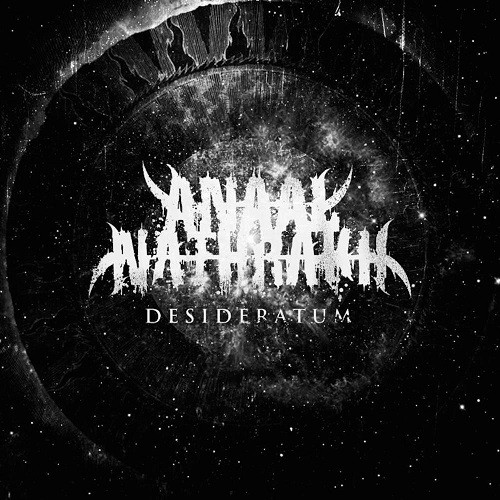
Kevin: Do you have one album that you consider your best?
Dave: Yeah, the most recent one. To me, I know it sounds like a cliché answer, but it's actually a bit more important than that. It should always be the case that you think your most recent one is the best, because if you don't, you didn't finish it; you know what I mean? You should always be aiming to work at the highest level, to do the best thing you possibly can, and over time you should be able to get better at doing that, hopefully. I think we have. Some people might disagree, obviously, but we feel that we have. And yeah, unless you think it's the best thing, you didn't do it right.
Kevin: That's a really good point. I'd probably have to agree; I think this is the best, maybe this or In The Constellation Of The Black Widow. It's a tough choice.
Dave: Yeah, I could see why that might be; I'm sure many people would disagree in a variety of ways, but for us, from the inside, so to speak, it's always got to be the new one.
Kevin: You've been doing this for about 16 years now. Does it ever get boring? Have you ever thought about just leaving music and doing something else entirely?
Dave: Well, we do other things at the same time; it's not impossible to do something other than music, sometimes. But no, not really. I mean, you say? 16 years, is it? I don't know. I'll take your word for it. Someone else said in an interview, "So, this is your eighth album. How does it feel to release your eighth album?" and I was like, "I don't fucking know, I didn't know it was the eighth album!" (*laughs*) Because we don't really take that kind of perspective; we don't stand back and look at how far we've come, or any silly notion like that. We're involved in doing it - this album, and maybe some early ideas we might have for the next one. That's "now," to us, and we're not really interested in "then." I don't mean to disregard everything we've done in the past, but we don't see it as like a "journey" or a "process"; we see it as what we've got enthusiasm for now and what we're working on, and that means we don't know that it's been that long or it's been so many albums or anything. We're not paying attention to that.
Kevin: Did you always want to do music? In other words, was this "what you wanted to be when you grew up"?
Dave: (*laughs*) I think I probably wanted to be a fireman or something when I was a little kid. No, no, not really. It's more a matter of? Music allows you to express something, to be creative, that sort of thing, and we always wanted to do that. Certainly I have. And I've always enjoyed making unusual noises (*laughs*). When I was a four-year-old kid I used to growl back at dogs and things like that. God knows what my poor mother thought was going on, but yeah, the aim to be "a musician," that's more of an external way of seeing it; that's what you'd attribute to somebody else, if you know what I mean. From the inside, it's more about being able to express and create and do something you've got passion for, and that has led to music.
Kevin: Well, I think that's just about all I've got. Do you have any last words?
Dave: (*laughs*) That sounds like you're about to execute me or something. Yeah: "I would have got away with it if it wasn't for those damn kids!" No, not really; I have no wisdom to impart. Just thanks, you know. Thanks to you for giving a shit, thanks to anyone who consumes this interview in whatever form it is for caring, and we appreciate it, and we depend on it for the continued existence of the band, so thank you.
Kevin: Thank you for taking the time out to do this.
Dave: No problem.
Kevin: (after awkwardly searching for some manner of closing statement) Well, thanks again, and, uh, good luck in the future, I suppose.
Dave: (*laughs*) Okay, cool. Good luck to you as well. See ya.
Kevin: Sayonara.
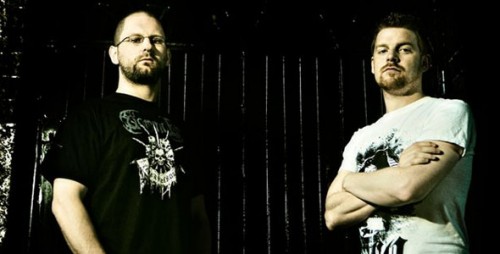
Thanks to Dave Hunt for taking the time to do this interview. Don't delay checking out Desideratum.
 | Posted on 06.12.2014 by I'm the reviewer, and that means my opinion is correct. |
Comments
Comments: 10
Visited by: 395 users
| J. N. Account deleted |
| Auntie Sahar Drone Empress |
| MelancholiaC |
| Vombatus Potorro |
| D.T. Metal Staff |
| Alex F |
| Lit. Account deleted |
| ScreamingSteelUS Editor-in-Chief Admin |
| Frodd Account deleted |
| Alondate |
Hits total: 16775 | This month: 15






 but I quite enjoyed reading it. The way they think while writing music and not giving a shit about their past or any other kind of thing is really cool! I have really high hopes for their new album
but I quite enjoyed reading it. The way they think while writing music and not giving a shit about their past or any other kind of thing is really cool! I have really high hopes for their new album 